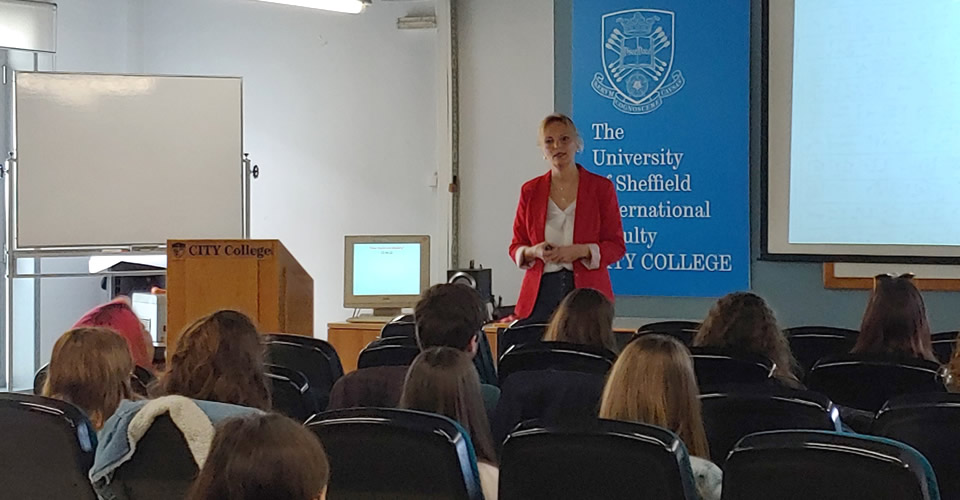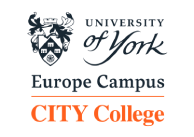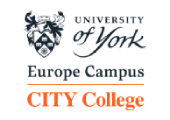The English Studies Department Sees that it is all in the Lexis
The month of May would not see The English Studies Department without an educational and informative seminar. This time the focus was on a language component some may view as minor while others may argue that it is paramount and quite challenging. If there’s one thing that is certain it is that we cannot communicate without words, without vocabulary. Dr. Thomai Alexiou addressed the matter of vocabulary in her seminar titled: Measuring Vocabulary in Young ESL Learners which was delivered on Tuesday, 7th May, 2019.

The significance of vocabulary is evident from very early ages and vocabulary development is paramount in foreign language learning. As Dr. Alexiou informs, syllabi and curricula now provide explicit information on vocabulary content and teaching through carefully compiled word lists. Testing centers and teaching materials also place greater emphasis on vocabulary and some even adopt a Lexical Approach to foreign language teaching. Vocabulary can be acquired almost everywhere both in and out of the classroom but the latter requires higher motivation.
Dr. Alexiou goes on to explain the different types of teaching frameworks that permit a greater emphasis on vocabulary and are both appropriate and engaging for young learners. These are: story-based; TPR (total physical response) and games; arts/crafts/drama; songs/rhymes and technology. A key feature in the above mentioned frameworks is the matter of repetition as this is vital for all learners.
In addition, as Dr. Alexiou highlights, cartoons are a great source for teaching vocabulary. The example of Peppa Pig is one that exposes learners to both frequent and infrequent words while also raising the interest and curiosity of learners and instilling pedagogical values regarding friendship, good behavior, manners, etc. In fact, this poses as an area that is still in need of further research.
Dr. Alexiou also stressed the matter of vocabulary retention and the need to repeat and recycle lexical items and be exposed to them so as to transfer them from our short term to long term memory. Thus here, as Dr. Alexiou explains, the relation between L1 and L2 is important and in cases such as Greek and English much easier. A Greek native having acquired lexical items and concepts in Greek has but to relabel and redefine when learning English for instance. The task is much more difficult in the case of young Chinese students for instance.
Thus, while a variety of vocabulary tests exist they may not necessarily be effective, informative or representative of what learners actually learn, acquire, understand or can produce. Evidently, assessing vocabulary can be as challenging as teaching it. Various parameters have to be met such as the testing method, if learners have been taught the respective vocabulary, if the instructions/format are clear and if the content is relevant. It is at this point that Dr. Alexiou brings the development of Pic-Lex: a test tool which is intended for very young learners and assesses receptive vocabulary size from picture cues.
Evidently, it is not a matter of whether we should be teaching or learning vocabulary. The question that is currently of interest is how much vocabulary and what vocabulary should be taught, how it should and can be taught and in what ways should it be assessed.








